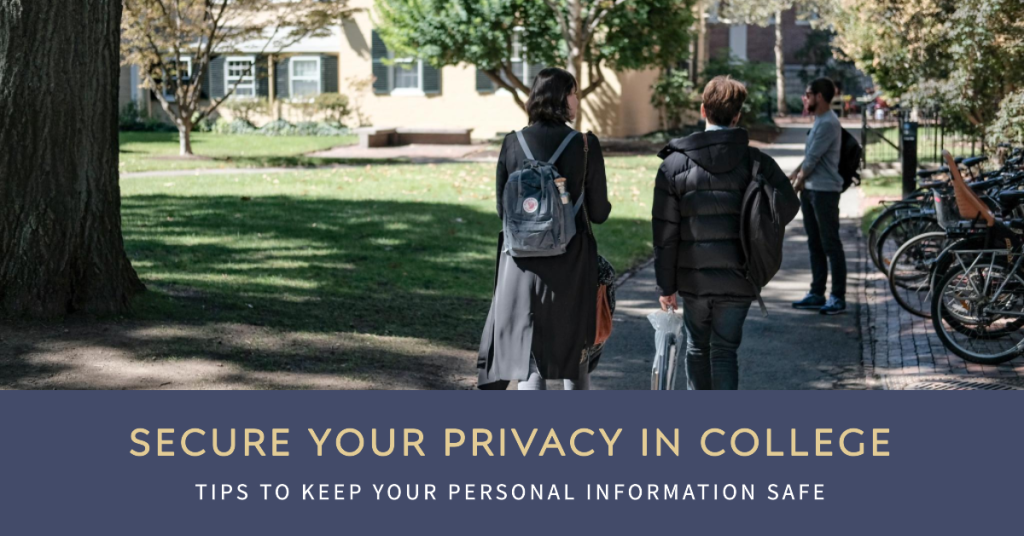As college students navigate the dynamic and digitally-driven landscape of higher education, safeguarding personal privacy is paramount. With the proliferation of technology and the increasing integration of digital tools into academic and social life, it’s essential to take proactive steps to protect your privacy while pursuing your education. In this comprehensive guide, we will explore effective strategies to safeguard your privacy throughout your college journey.
Understand the Privacy Landscape
Before delving into specific measures, it’s crucial to grasp the evolving privacy landscape in a college setting. Colleges and universities often collect data on students for administrative and educational purposes. This data can include academic records, financial information, and even personal communications within campus systems. Understanding how your data is collected, stored, and used is the first step in protecting your privacy.
Secure Your Devices and Accounts
One of the fundamental aspects of privacy protection is securing your devices and online accounts. Ensure that your devices, including laptops, smartphones, and tablets, have strong passwords or biometric authentication. Enable two-factor authentication (2FA) wherever possible to add an extra layer of security to your accounts.
Encrypt Your Communications
Encrypting your communications is vital, especially when sharing sensitive information. Use end-to-end encrypted messaging apps like Signal or WhatsApp for personal conversations. For email, consider using services that support encryption, such as ProtonMail or Gmail with encryption extensions.
Safeguard Your Online Identity
Be cautious about what you share online. Avoid oversharing personal information on social media platforms. Review your privacy settings and limit the visibility of your posts and profiles to only trusted individuals. Cybercriminals often exploit publicly available information for identity theft and phishing attacks.
Protect Your Academic Records
Colleges maintain extensive academic records, which are sensitive in nature. Ensure that your academic records are kept confidential. When accessing your transcripts or other academic documents online, use secure, private connections, and log out of your account when finished.
Use Virtual Private Networks (VPNs)
VPNs are powerful tools for safeguarding your online privacy. They encrypt your internet traffic and route it through secure servers, making it difficult for third parties to monitor your online activities. Consider using a reputable VPN service, especially when connecting to public Wi-Fi networks on campus.
Endpoint Detection and Response (EDR) in College
While Endpoint Detection and Response (EDR) solutions are not the central focus of this article, they play a crucial role in cybersecurity within a college environment. EDR services help colleges detect and respond to security threats on devices connected to their networks, enhancing overall security.
Be Wary of Public Computers and Networks
Exercise caution when using public computers and Wi-Fi networks on campus. Public computers may have malware or keyloggers, and public Wi-Fi networks can be vulnerable to attacks. Avoid accessing sensitive information on public computers and use VPNs when connecting to public Wi-Fi.
Familiarize Yourself with Campus Policies
Colleges often have specific policies and guidelines related to data privacy and security. Familiarize yourself with these policies, as they may provide insights into how your data is handled and protected. Additionally, understanding these policies can help you make informed decisions about sharing information with the institution.
Secure Your Financial Information
Protect your financial information rigorously. Use secure, private connections when accessing online banking or making financial transactions. Be cautious about sharing financial details over the phone or email, as phishing scams targeting students are not uncommon.
Dispose of Sensitive Information Securely
Properly dispose of sensitive physical documents, such as academic records or financial statements, by shredding them before discarding. Additionally, securely delete digital files containing personal information when they are no longer needed.
Educate Yourself and Stay Informed
Stay informed about cybersecurity best practices and emerging threats. Attend workshops or seminars on campus that focus on privacy and security. Being proactive about your cybersecurity education will empower you to make informed decisions.
Report Suspicious Activity
If you suspect any privacy or security breaches on campus, promptly report them to the appropriate campus authorities or IT department. Reporting such incidents can help protect not only your privacy but also the privacy of your peers.
Conclusion
Protecting your privacy in a college environment is an essential aspect of personal cybersecurity. By understanding the privacy landscape, securing your devices and online presence, and being vigilant about your digital footprint, you can enjoy the benefits of technology while minimizing the risks associated with privacy breaches. Remember that privacy protection is an ongoing effort, and staying informed and proactive is key to safeguarding your personal information throughout your college journey.
